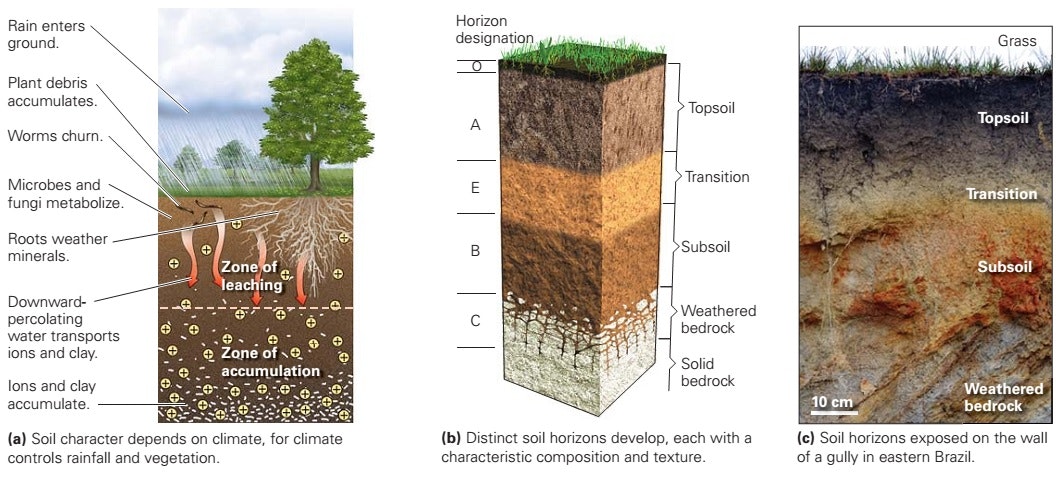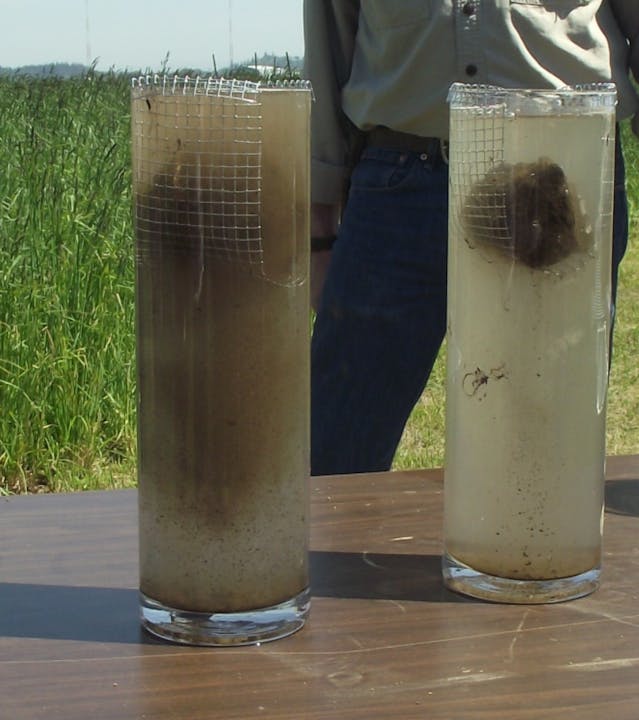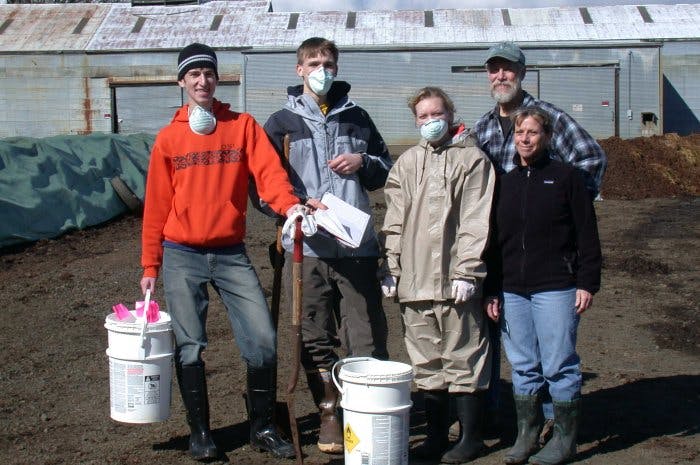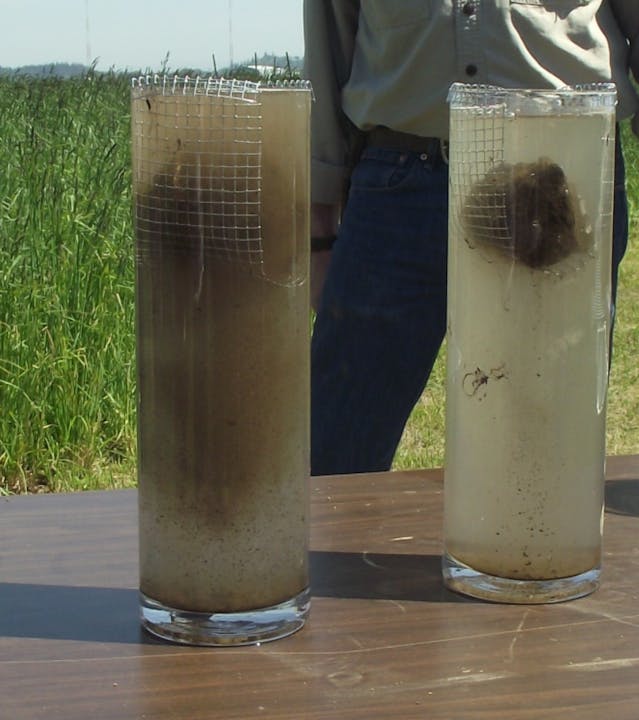Soil Health
What exactly is soil?
.JPG?ixlib=rb-1.1.0&w=2000&h=2000&fit=max&or=0&s=515e1c0918150fdd10a50957ea783a42)
Soil is an integral part of the environment and vital to life on Earth. It is slow to develop and difficult to rebuild. Soil performs essential ecosystem functions, including flood prevention, water storage and nutrient cycling for plant growth. Soil is home to myriad creatures of wondrous proportions and inconceivable diversity.
Soil is an amazing three-dimensional body on the earth’s surface that develops in place over time. The most recent survey of Benton County describes 180 different soil map units that vary based on several soil formation factors.
What determines soil type?
- the temperature, moisture, plants and organisms in the mineral soil environment
- relief or topography of the landscape
- the organic matter or mineral parent material from which the soil evolves
- the length of soil development time.

Why does soil quality matter?
Monitoring your soil has important benefits. The better you understand your soil, the more likely you are to adopt practices that increase water-holding capacity and improve plant health. Furthermore, an understanding of your soil’s capability will help you lower production costs and reduce frustration. As you incorporate effective management practices, you will reduce environmental impacts with consequences far beyond the scope of your own property.

Resources
You can read the Natural Resources Conservation Service’s description of your site’s soils. Browse the Benton County Soil Survey or visit the NRCS Web Soil Survey, an online, interactive soil information source. These excellent references highlight physical and chemical properties, and water and soil features that influence agricultural and engineering considerations for land use.










